Watch the full video interview here
Jake Graf is an actor, writer, producer, director, and extremely talented trans storyteller. With a string of moving short films under his belt, Jake is now conceptualising his first feature film, based on his 2017 short Dusk. Following the life of Chris, Dusk explores the struggle for trans acceptance from the 1950s to the present day.
FilmDoo talks to Jake Graf about his work and his experiences as a trans man in the UK.
When did you first decide that you wanted to make films?
I have been writing stories since I was about 4 or 5 years old and it was something that I apparently had a bit of a flair for at school. My teacher would say, ‘he’s going to go on and do great things story-wise’. Then I stopped for years when I was going through the difficult teenage years and so on, especially as a trans person. Then as soon as I decided to transition, I wanted to write about it and tell the story, and so I wrote a fictional story using my own transition. I shot it over 2 years and at the beginning I look very fresh-faced, then by the end of the film two years later I’ve got a big beard and look completely different, and apparently that hadn’t been done before. That was my first film X-Why. X-Why did really well and was nominated for the Iris Prize and premiered at BFI Flare and that was the first thing I ever really wrote, produced, directed, and starred in. So, spurred on by that, I carried on making movies. Had that completely flopped, I would probably have just done that as a little fun thing. But, as that was quite well received, I thought: yeah, why not?
One thing that comes up quite often in your films is violence against the LGBT community, specifically the trans community – why do you explore this so often in your films?
It’s strange actually because quite often that gets picked up on in the UK more than it does in the US. Maybe in the UK, people feel that we’ve sort of moved past that, but then I hear very regularly from friends or see on Facebook, maybe more in the US, that physical beatings and especially verbal abuse, particularly for my trans female friends, happen on nearly a daily basis. In the US I see regularly from my Facebook friends, young trans guys being beaten up in school or in the street or in the restroom. Whilst over here the narrative may have moved on past that, I think it is something that does happen on a daily basis. I do hear about friends of mine walking through Soho hand in hand and getting spat on and shoved or ruffed up because there are bigots everywhere. While I tend not to make these attacks the focus of my films, it’s a theme I go back to because obviously the consequences of these attacks move forward other choices and decisions in the protagonists’ lives.
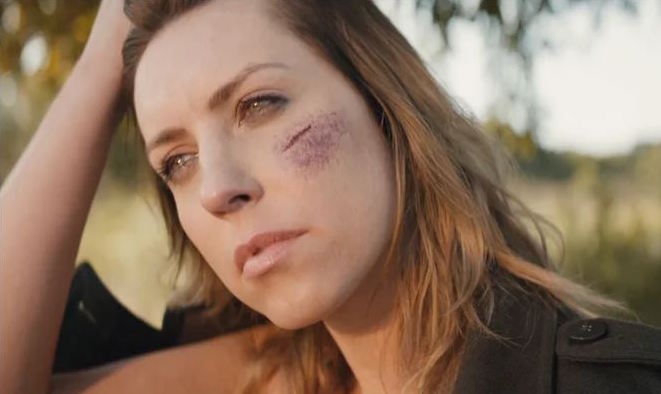
To what extent do you think that you make films for the trans community in terms of representation, or for the non-trans community in terms of education?
I make films that I think are going to change people’s perceptions. I make films hoping that people within the community will see themselves on screen, whereas possibly before they’d never seen themselves, and I think that’s really important. I grew up never seeing myself on screen and feeling incredibly isolated and lonely and like a sideshow freak. I felt like I was the only person in the world that felt like that, because if you look to media and to your TV screen in the 80s or 90s, you don’t ever see yourself on screen. Media and art, be it on screen or on stage, play such an important part in changing the dialogue and opening people’s minds up. I never had that so to me it’s important for within community. But then I try to make the films accessible enough so that a broader audience can watch them and hopefully have their perceptions changed.
My girlfriend is trans, so I’ve got a great view into that side of things as well, and I’ve got loads of trans female friends. I think until recently people almost didn’t know that trans guys existed, because by and large it’s so easy for us to kind of live that stealth lifestyle under the radar, because of our physicality and because testosterone is such a powerful hormone that it really does change you. No one would know you’re trans, in my case whenever I tell people I’m trans they’re like ‘don’t be so ridiculous’! Whereas with trans women, it tends to be that their physicality, again having had hormones, testosterone, washing over them for usually up to around 20 years of their lives, it’s very hard to reverse a lot of those changes. So, historically, they have been at the frontlines of most of our fights, most of our battles, most of our political lobbying and campaigning. For them it’s been something that they’re used to, which I think is why there are more trans women’s clubs and magazines and bars because they’re had to be there, theirs is a reality and physicality and a presence that can’t be erased.
Rebecca Root having two seasons on BBC Two’s Boy Meets Girl was great. With gay people, if you look back to the genesis of the gay rights movement in 1980s San Francisco, when Harvey Milk was trying to get people on board he said ‘look to your brother, your neighbour, your postman, your friend, you will see someone like me and you will see someone like us, and you will realise we are not to be feared’ – but with trans people unfortunately there aren’t enough of us out there to do that. Only 8% of Americans know someone trans, so when you’re the unknown, people fear that because people are scared of what they don’t understand. I think with more of us out there, with Rebecca being beamed into people’s living rooms once a week for over two years, people felt that they knew Judy and got to know someone trans. There’s also Annie Wallace, who’s another friend of mine, on Hollyoaks. Having walked with her for Manchester Pride a couple of years ago and seeing the huge overwhelming support and positivity, to finally see that trans people are not just a figure of fun or the ‘freak’, it is hugely positive and something that going back even 6 or 7 years people probably wouldn’t have believed.
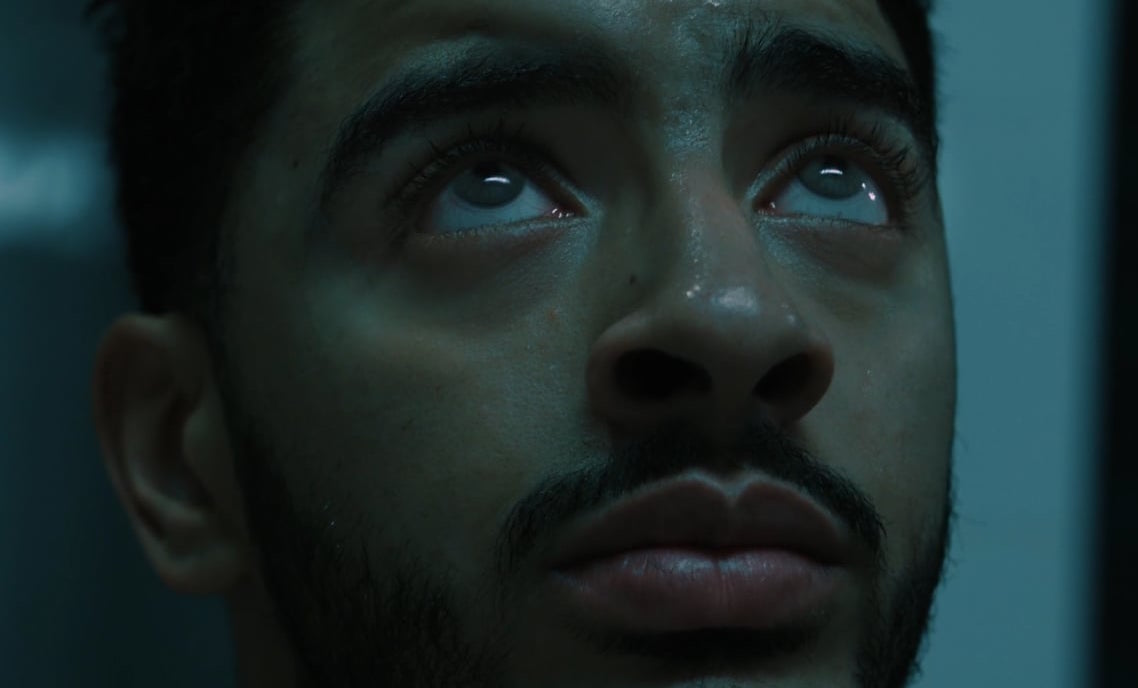
At the end of Headspace, it says ‘things are changing’. Was that positive message based on life here in the UK?
Yeah, I think things are changing. Having a trans girlfriend, I do see what it must be like for a trans woman walking around on her own. I think it’s a very different reality. However, I know that things are getting better, I know that ten years ago I wouldn’t have been as visible an advocate as I am now because I wouldn’t have felt safe doing so. As much as I know that there are things that still go on in schools daily, I think now at least people are concerned that those things are going on and schools will, for the most part, tackle these issues.
The Mermaids charity of which I’m patron work with kids from 3 to 19 and their families and friends. They help them because obviously when someone transitions it’s not just you transitioning, it’s your family as well, whether your family embraces that or not. For most of the Mermaids kids, the reason they’re there is that their parents have taken them there for that support, so they are by and large embraced by their families. But it’s very hard for an older or younger sister to suddenly have a trans sibling. That can lead to bullying and difficulties for them as well. I think to have someone go into a school with you and say ‘We are Mermaids’ and this is so-and-so, and quite often these kids are 6 year’s old; they’re not going to stand up in assembly and come out. Mermaids can help them make little videos or show videos they’ve made previously with some of their older kids so these kids realise that they are people to look up to and are nothing to be feared. So there is still a long way to go, things are getting better, but I think across the world for LGBT people there is still a long climb.
Can you tell me a bit about the feature you’re currently working on?
It’s going to be an expansion of Dusk. I knew as a total stand alone at the age of 2 or 2 and a half that I was different; that I was a boy. I wanted to show that in this film, that this is a kid that has no influence from the media, from peers, from other trans people, from the big ‘queer agenda’ trying to recruit or all of these weird perceptions that people have of why a child is gay or why a child is trans. I really wanted to show that, that this is someone left very much to their own devices that just knows who they are, because you do know. I think given the freedom, because I’ve never written a feature, given the freedom to have a scene that lasts maybe 4 or 5 minutes as opposed to 30 seconds and then moving on, would just be great. Then there’s the funding issue, jumping through hoops and so on, but I think after 7 short films now is the time.

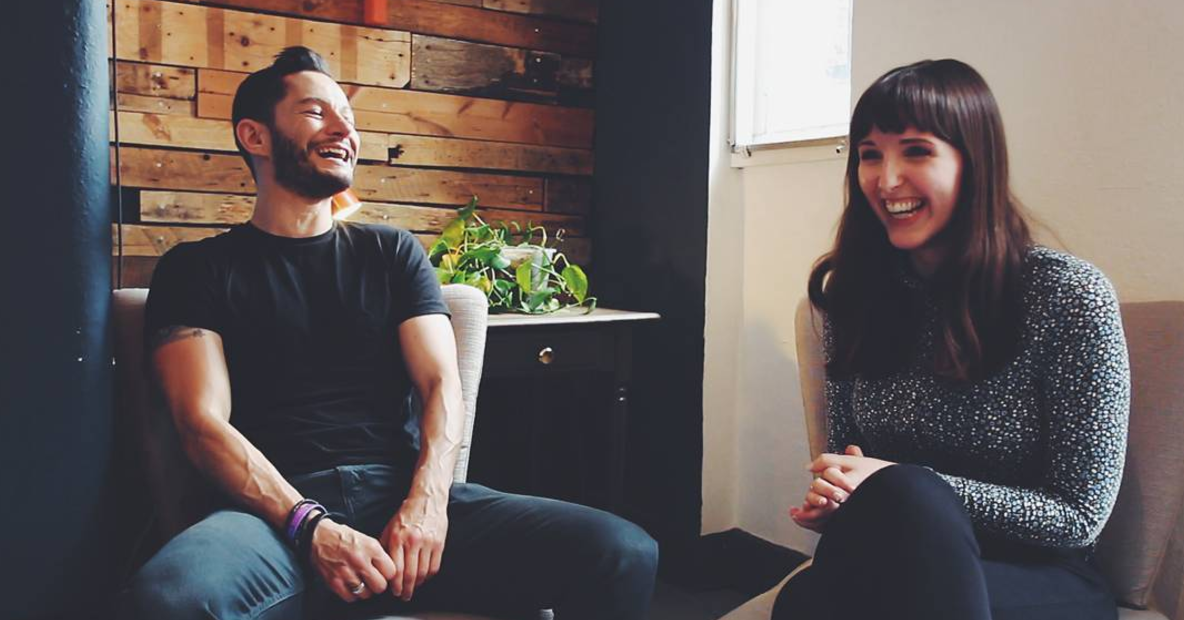

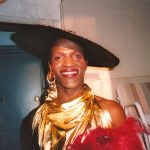
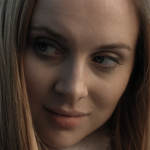

Where can I watch x-why? I’ve searched all over the internet. Jake Graf you are an amazing writer and a great inspiration. Peace and love.
-Maicu